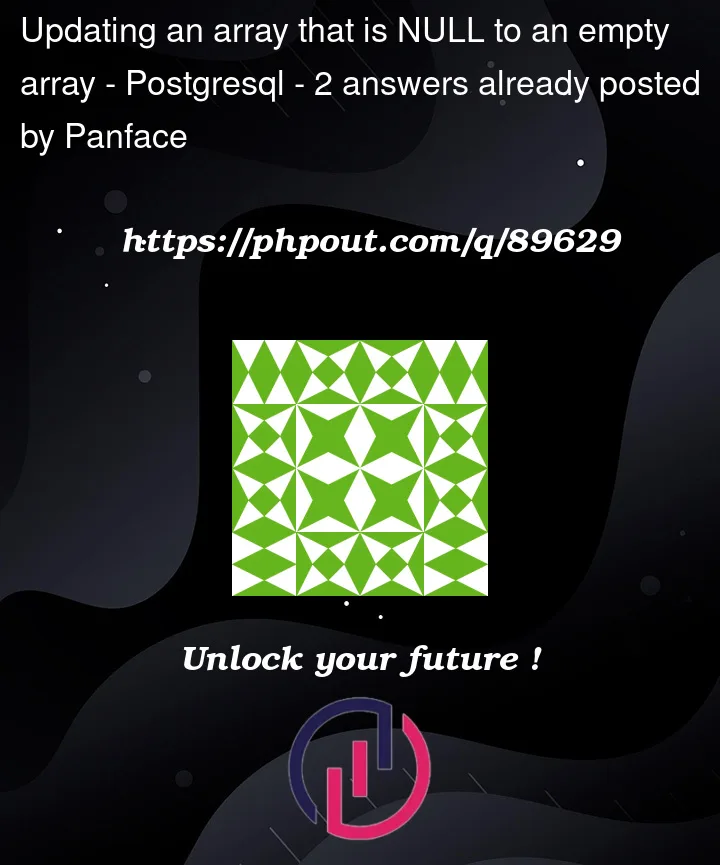So I have problem where I want to filter things and then update them twice.
Say I have this table called licence:
licence_id | user_id | property | validity_dates | competition_ids |
-----------+---------+-------------+--------------------------------+-----------------------
1 | 20 | JOHN | [2022-01-01,2025-01-02) |
2 | 21 | JOHN | [2022-01-01,2025-01-02) | {abcd-efg, asda-12df}
I’d like to update competition_ids which are NULL into an empty array such as '{}' because this script
ARRAY(SELECT DISTINCT UNNEST(array_cat(competition_ids, ARRAY['hijk-23lm'] )))
works only on empty arrays instead of NULLs. Once I convert them into empty arrays, I’d like to use the same script again.
The script only works on empty arrays ( '{}' ) and not NULLs. If I can make the script work with NULL values, then this post is pretty much solved. But If I can’t then this post is still a problem unfortunately.
The current script I’m using does not change NULLS into ‘{}’ and I’m not sure exactly why.
UPDATE licence
SET competition_ids =
(CASE
WHEN competition_ids is NULL
THEN ARRAY['{}'] THEN ARRAY(SELECT DISTINCT UNNEST(array_cat(competition_ids, ARRAY['hijk-23lm'] )))
ELSE ARRAY(SELECT DISTINCT UNNEST(array_cat(competition_ids, ARRAY['hijk-23lm'] )))
END)
WHERE NOT competition_ids @> ARRAY['hijk-23lm']
AND validity_dates = DATERANGE('2022-01-01', '2025-01-02', '[)')
AND property = 'JOHN';




2
Answers
There is no need to unnest and aggregate the array. You can use the concatenation operator
||to append a new element to an array. To deal with NULL values usecoalesce()If you are dealing with arrays that possibly contain unique elements, the best approach is probably to create a function that handles this:
Then use it like this:
A better solution might be to use a properly normalized data model with a one-to-many relationship where you can define a unique constraint that ensures this. Adding elements can then be done using
insert ... on conflictThis part of your script:
has no problem with a
nullin thecompetition_idsfield: online demoThe reason your
updatestatement doesn’t affect the first record is becausenull @> text[]results in anullso yourwherecondition filters it out. The statement ends up skipping that row.You can use
coalesce()to fix it.Online demo: